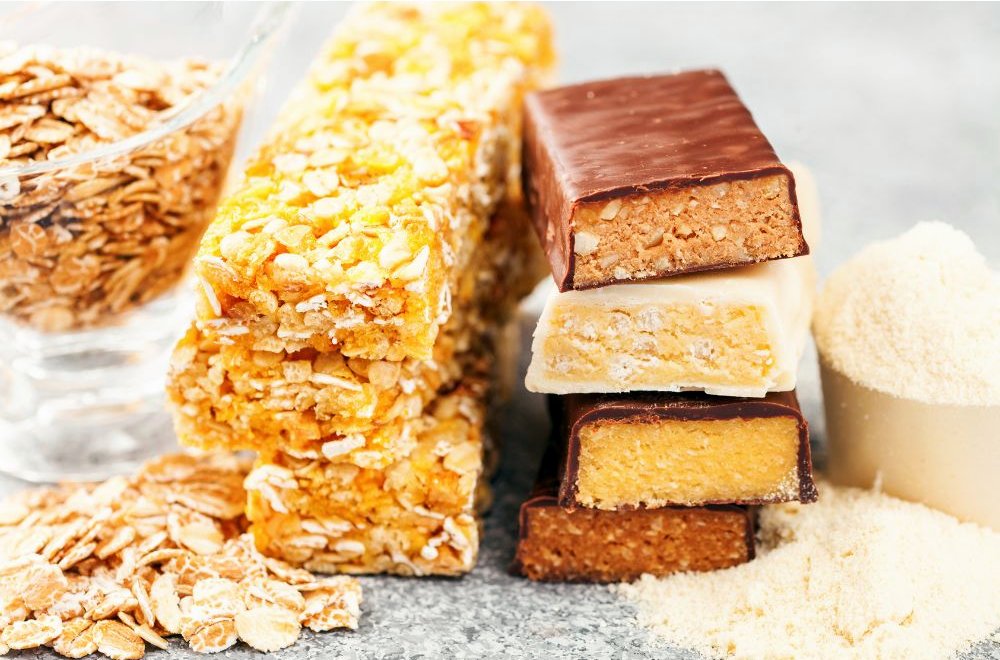In the fast-paced world of health and fitness, protein bars have become a go-to snack for those seeking convenience without sacrificing nutrition. But not all protein bars are created equal. To help you navigate the crowded market, let’s explore what makes a protein bar good and highlight some of the best options based on expert reviews.
Key Factors That Make a Protein Bar Good
Protein Content
A quality protein bar should provide 15 to 25 grams of protein per serving. This amount supports muscle repair and helps keep you full between meals.
Quality of Protein Source
The type of protein matters just as much as the amount:
- Whey Protein:
Fast-digesting and rich in essential amino acids; ideal for muscle recovery. - Plant-Based Proteins:
Includes pea, rice, and hemp proteins. Great for vegans and those with lactose intolerance. .
Tip: Look for blended plant proteins to ensure a complete amino acid profile
Ingredient Quality
Choose bars made with high-quality, whole-food ingredients.
- A short, recognizable ingredient list often signals better quality.
- Avoid:
- Artificial sweeteners
- Preservatives
- Excessive fillers
Nutritional Balance
A good protein bar offers more than just protein—it provides balanced nutrition to fuel your day.
- Healthy Fats:
Ingredients like nut butters and seeds offer heart-healthy fats. - Complex Carbohydrates:
Whole grains and oats provide fiber and sustained energy.
Taste and Texture
Enjoyment matters! A bar should taste good and have an appealing texture.
- Flavor Variety:
From chocolate to fruit-based options, diversity helps prevent flavor fatigue. - Texture:
Whether chewy or crunchy, it should be pleasant—not chalky or overly dry.
Digestibility
Look for bars that are easy on the stomach.
- Avoid ingredients that commonly cause bloating or discomfort (e.g., excessive sugar alcohols).
- Seek out bars labeled as gut-friendly or tested for digestive sensitivity.
Dietary Considerations
Match your bar to your dietary needs:
- Gluten-free
- Dairy-free
- Vegan
- Low-carb or keto-friendly
Brand Reputation & Transparency
Choose brands you can trust:
- Look for transparent labeling and clean ingredient sourcing
- Favor companies that offer third-party testing for quality and safety
- Read customer reviews and expert recommendations
Top Protein Bars Based on Reviews
Based on expert reviews and nutritional analyses from sources such as Healthline, Verywell Fit, and Men’s Health, here are some of the best protein bars available:
RXBAR
Highlights: Made with simple ingredients like egg whites, nuts, and dates, RXBARs contain around 12 grams of protein and no added sugars.
Consensus: Reviewers appreciate the clean ingredient list and flavors like Chocolate Sea Salt and Peanut Butter (Healthline).
Quest Bar
Highlights: Known for their high protein content (around 20 grams) and low sugar, Quest Bars are made with whey protein isolate and high in fiber.
Consensus: Many enjoy the wide variety of flavors and the bar’s texture, particularly the Cookies and Cream flavor (Verywell Fit).
ONE Bar
Highlights: With 20 grams of protein and just 1 gram of sugar, ONE Bars are marketed as indulgent snacks. They come in several dessert-inspired flavors.
Consensus: Reviewers frequently praise the taste, especially the Birthday Cake flavor, making them a popular choice for those with a sweet tooth (Men’s Health).
Clif Builder’s Protein Bar
Highlights: Offering 20 grams of protein, these bars use organic ingredients and provide a hearty texture.
Consensus: Consumers appreciate the taste and nutritional balance, although they are higher in calories compared to other options (Healthline).
FitJoy Protein Bar
Highlights: With 20 grams of protein and a focus on high-quality ingredients, FitJoy bars are gluten-free and low in sugar.
Consensus: Users enjoy the rich flavors, particularly Chocolate Peanut Butter and Cookies and Cream (Verywell Fit).
Quick Reference: What Makes a Good Protein Bar?
| Criteria | What to Look For |
|---|---|
| Protein Content | 15–25 grams per serving |
| Protein Source | Whey for fast absorption; plant-based blends for vegans and lactose intolerance |
| Ingredient Quality | Whole-food, natural ingredients; short and clean ingredient list |
| Nutritional Balance | Healthy fats (e.g., nut butters), complex carbs (e.g., oats), and fiber |
| Taste and Texture | Variety of flavors; chewy or crunchy texture that’s pleasant |
| Digestibility | Gut-friendly formulations; avoid sugar alcohols if sensitive |
| Dietary Compatibility | Gluten-free, dairy-free, vegan, or keto options based on your needs |
| Brand Transparency | Reputable brands with clear labels and third-party testing |
Conclusion
A good protein bar combines quality protein, wholesome ingredients, balanced nutrition, and great taste. Based on reviews from credible sources, RXBAR, Quest Bar, ONE Bar, Clif Builder’s Protein Bar, and FitJoy Protein Bar stand out as top choices. By considering the factors outlined in this article, you can make an informed decision that aligns with your health and fitness goals. With the right protein bar, you can fuel your day effectively and deliciously!
Frequently Asked Questions (FAQ)
A sugar-free protein bar contains no added sugars. Instead, it may use natural sugar substitutes like stevia, erythritol, monk fruit, or dates to add sweetness without spiking blood sugar.
Yes—when made with high-quality ingredients. The best options offer a balance of protein, fiber, and healthy fats while avoiding artificial sweeteners and fillers.
Yes, in moderation. A sugar-free protein bar can be a nutritious snack or meal supplement, but it shouldn’t replace whole foods in your diet.
When choosing a protein bar, avoid those with excessive sugar alcohols like maltitol or sorbitol, which can lead to digestive discomfort for some people. Steer clear of artificial ingredients, such as synthetic sweeteners, colors, or preservatives, as they can compromise the overall nutritional value. Also, check the protein content—bars with less than 10 grams of protein may not provide enough to be filling or support muscle recovery. Always read labels carefully to ensure you’re getting a bar that aligns with your health goals.
They can support weight loss by curbing hunger and reducing sugar intake, especially when used as part of a balanced diet and active lifestyle.

